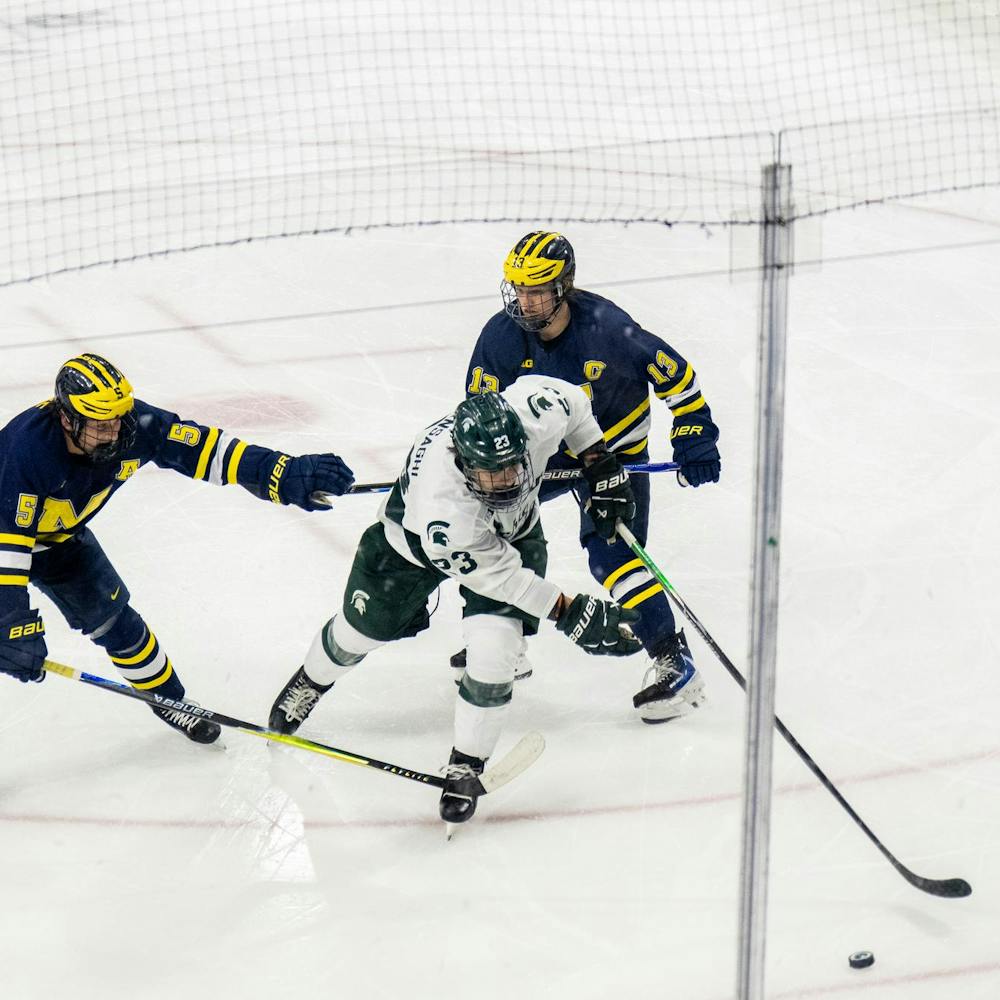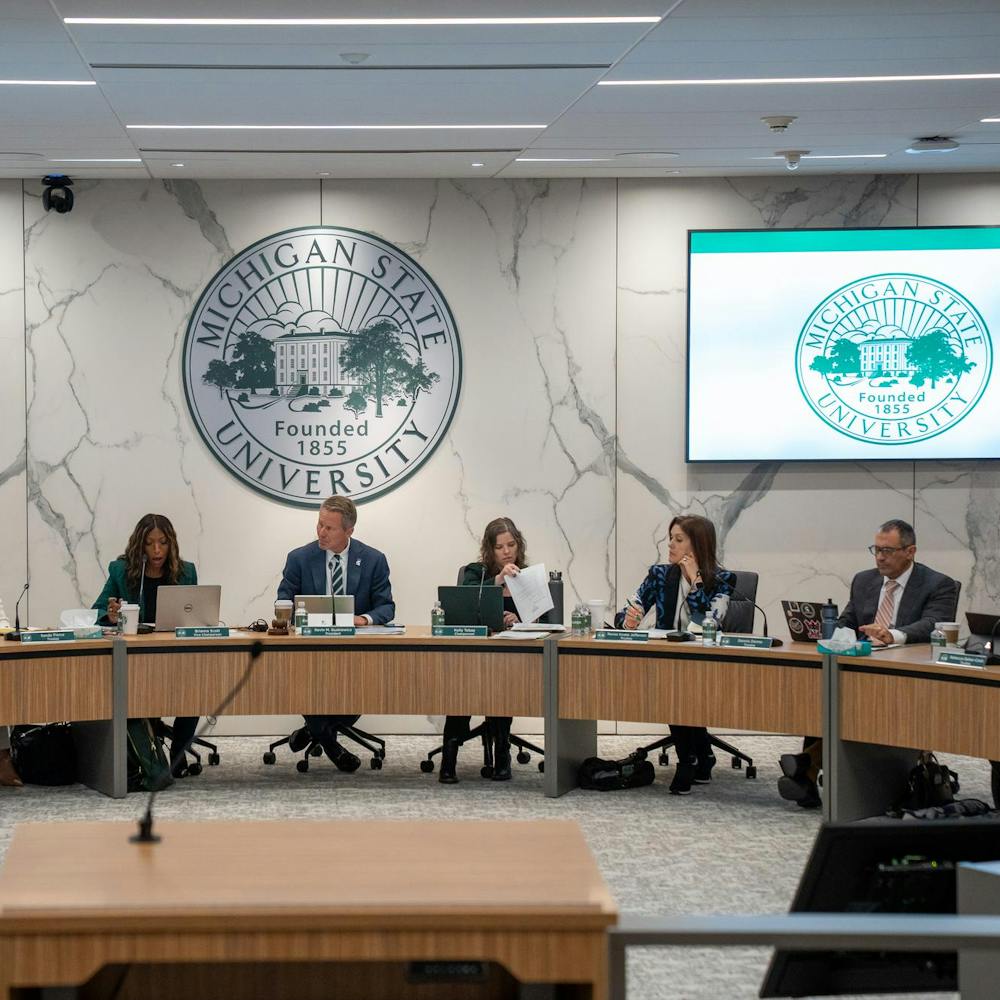Michigan State University announced on Wednesday its intention to invite students back to campus, but not without "a coordinated surveillance capability, a sound infection prevention and control strategy and a means to quickly identify, isolate, treat and refer individuals to mitigate a second wave of infection."
Contact tracing, or notifying people who may have come into contact with someone who tested positive for a variety of communicable diseases, is among the multitude of tools public health officials are using to slow the spread of COVID-19.
Without it, a second wave of new infections would be more than likely to overwhelm our community. A local resurgence in cases of COVID-19 would "result in a return to more restrictive mitigation measures and physical distancing for periods of time," according to a university statement.
One of the 21 subcommittees in MSU's Reopening Campus Task Force is exclusively dedicated to contact tracing. University Spokesperson Emily Guerrant said details are still being ironed out.
Therefore, until a vaccine is widely available — which, according to the Dr. Anthony Fauci, director of the National Institute of Allergy and Infectious Diseases (NIAID), could be 12 to 18 months from now — contact tracing is a more immediate method of containing the coronavirus.
But, what exactly is contact tracing?
Contact tracing is a public health deep dive, or investigation, that retraces a person's steps to find out who they'd been in contact with while unknowingly playing host to a virus or disease. The practice is most commonly used for sexually transmitted diseases (STDs).
According to Lynn Sutfin, public information officer at the Michigan Department of Health and Human Services (MDHHS), contact tracing starts when an individual tests positive for a virus or disease.
According to the CDC, contact tracing is a specialized skill and, to be done effectively, it requires people with specific training, supervision and access to social and medical support. Requisite contact tracer knowledge, listed on the CDC website, includes:
- An understanding of patient confidentiality, including the ability to conduct interviews without violating confidentiality (e.g., to those who might overhear their conversations).
- Understanding of the medical terms and principles of exposure, infection, infectious period, potentially infectious interactions, symptoms of disease, pre-symptomatic and asymptomatic infection.
- Excellent and sensitive interpersonal, cultural sensitivity, and interviewing skills such that they can build and maintain trust with patients and contacts.
- Basic skills of crisis counseling, and the ability to confidently refer patients and contacts for further care if needed.
- Resourcefulness in locating patients and contacts who may be difficult to reach or reluctant to engage in conversation.
- Understanding of when to refer individuals or situations to medical, social, or supervisory resources.
- Cultural competency appropriate to the local community.
Who's tracing?
The first step of the process is for health care providers to alert a patient who tested positive sensitively and rapidly, then request for them to self-isolate and decipher who they have recently seen and where they have been. The patient's local health department is also alerted.
The second step of the process lies with volunteers, or "contact tracers." Their job is to take the information they've been given and contact those who may have been exposed to the virus so they know that they could easily transmit it to others.
They also provide important state and local resources regarding spread-preventive actions, such as a 14-day self-isolation. Anyone seeking to sign up to volunteer can visit Michigan.gov/fightcovid19
Michigan signed contracts with two companies on May 9: Rock Connections, who will lead this volunteer management, and Deloitte, who will lead technology integration.
The state program was delayed after Gov. Gretchen Whitmer’s office canceled the original contact tracing agreement with Kolehouse Strategies due to its relationship to NGP VAN, a technology provider for Democratic campaigns, according to Bridge Magazine. State health officials dispute accusations of partisan motivation.
Sutfin said the volunteers are provided with the names, phone numbers and counties of residence of people who were in close contact with a suspected or confirmed case.
However, she made note that volunteers do not have access to test results, addresses, health insurance or financial information. The identity of any patient who tests remains private.
Sutfin said contact tracers might check in with the individual daily, by text or phone, to monitor their how their well-being progresses.
A call from one of these contact tracers is not a confirmation that you have the virus. It’s only to let you know that you are at a higher risk due to recent exposure and should take necessary precaution.
Support student media!
Please consider donating to The State News and help fund the future of journalism.
Similarly, Dr. Joneigh S. Khaldun, MDHHS chief medical executive and chief deputy director for health, said in Whitmer's press conference Thursday that, if someone from the state or local health department calls you, you should answer the phone.
Contact tracing calls come from 866-806-3447, MI COVID HELP or your local health department. She made note that they are only trying to help, not track your movements or steal your personal information.
Any caller requesting personal identification or financial information is likely a scam, according to the MDHHS website.
Due to the nature of social distancing guidelines and Whitmer's executive orders, there are substantially fewer places people could have been, making contact lists a lot smaller than usual.
According to Khaldun, over the last month, and through partnership with local health departments, the state has doubled the speed at which they are contacting COVID-19 positive individuals to conduct case investigation interviews.
They have implemented both a new, centralized contact tracing platform that reaches out to every known contact of a positive case within 24-hours and created a virtual map to better illustrate the risks of COVID-19 across the entire state by presenting data on testing, cases and deaths in breakdown of county.
Top priority settings for investigation, listed on the CDC website, include, but are not limited to:
"Engagement of the public with contact tracers must be widely accepted in order to protect friends, family, and community members from future potential infections," the CDC's website said. "Key public officials and community leaders will need to be engaged and supportive of contact tracing efforts. ... To be successful, a community will need public awareness, and understanding and acceptance of contact tracing and the need for contacts to separate themselves from others who are not exposed."
Discussion
Share and discuss “Contact tracing in Michigan: What you need to know” on social media.








